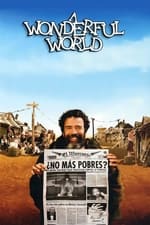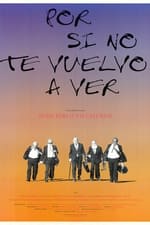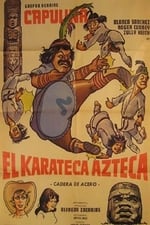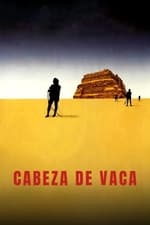Zur Person
Bekannt für Darsteller
Auftritte 62
Geschlecht Männlich
Geboren am 3. März 1928
Verstorben am 6. Juli 2016 (88 Jahre alt)
Geboren in Mexico City, Mexico
Auch bekannt als
- -
Datenstand
100
Genial! Das sieht gut aus!
Anmelden um einen Fehler zu melden
Biografie
Prolific Mexican actor with more than 100 films in his filmography.
His first intention was to be a painter. However, life would take him on other paths and his incursion into the world of the arts would be as an architect, a career he studied at the suggestion of a cousin just out of school, given his interest in painting, and from which he graduated from the National Autonomous University of Mexico in 1954. Shortly after, he dedicated himself to promoting crafts with artists such as Manuel Felguérez and Felipe Ehrenberg, one of his first assistants. With Felguérez he devised a different line of ceramics and with Ehrenberg he invented a technique for painting on amate paper, which he later taught to indigenous people in the facilities of his café-gallery La Amargura, located on the street of the same name in the San Ángel neighborhood.
As a painter he only mounted one exhibition, although every day he drew and made caricatures from the news in the newspapers: "One ends up with more or less possibilities of doing what one wanted, although, as Picasso said, at this age is when one has more desire to do things; I feel that one understands them better, knows better what one wants to do, but it is already too late," he acknowledges in the documentary by Carolina Kerlow.
However, it would be in the acting facet in which he would stand out the most and which would give Max Kerlow the most satisfaction.
He began his career in Mexican cinema in 1963 under the direction of Juan José Gurrola in Confesión de Stavroguin.
A friend of directors such as Paul Leduc, Felipe Cazals and Arturo Ripstein, it was natural for him to be invited to participate in their films, although Max Kerlow assured that he always liked acting: "I was invited to parties sometimes just to tell jokes; I have my diploma as a joke teller". He was also a magician. He was even able to combine his interests: "When Miguel Littin said "we are going to Chihuahua to film Actas de Marusia (1976), I took the opportunity to bring my catalogs and sold my crafts very well".
And he was not just any actor making any movie. His film performances are proof of his histrionic quality. He participated in Las Poquianchis (1976), El apando (Felipe Cazals / 1976), Fox Trot (Arturo Ripstein / 1976); Frida, naturaleza viva (Paul Leduc / 1983), where he played the role of Leon Trotsky, Cabeza de Vaca (Nicolas Echevarria / 1991); Cómodas mensualidades (Julian Pastor / 1992); Kino (Felipe Cazals / 1993); De noche vienes Esmeralda (Jaime Humberto Hermosillo / 1997); La hija del caníbal o Lucía, Lucía (Antonio Serrano / 2003), Morirse está en hebreo (Alejandro Springall / 2007); Cinco días sin Nora (Mariana Chenillo, 2008).
In 1998 he won the Ariel Award for best male co-acting for his performance in Por si no te vuelvo a ver (Juan Pablo Villaseñor, 1997), debut film of the Centro de Capacitación Cinematográfica (CCC).
In the Italian film Mediterráneo (1991), directed by Gabriele Salvatores, winner of the Oscar for best foreign film, Max Kerlow had a leading role. He also participated in documentaries and commercials.
Prolific Mexican actor with more than 100 films in his filmography.
His first intention was to be a painter. However, life would take him on other paths and his incursion into the world of the arts would be as an architect, a career he studied at the suggestion of a cousin just out of school, given his interest in painting, and from which he graduated from the National Autonomous University of Mexico in 1954. Shortly after, he dedicated himself to promoting crafts with artists such as Manuel Felguérez and Felipe Ehrenberg, one of his first assistants. With Felguérez he devised a different line of ceramics and with Ehrenberg he invented a technique for painting on amate paper, which he later taught to indigenous people in the facilities of his café-gallery La Amargura, located on the street of the same name in the San Ángel neighborhood.
As a painter he only mounted one exhibition, although every day he drew and made caricatures from the news in the newspapers: "One ends up with more or less possibilities of doing what one wanted, although, as Picasso said, at this age is when one has more desire to do things; I feel that one understands them better, knows better what one wants to do, but it is already too late," he acknowledges in the documentary by Carolina Kerlow.
However, it would be in the acting facet in which he would stand out the most and which would give Max Kerlow the most satisfaction.
He began his career in Mexican cinema in 1963 under the direction of Juan José Gurrola in Confesión de Stavroguin.
A friend of directors such as Paul Leduc, Felipe Cazals and Arturo Ripstein, it was natural for him to be invited to participate in their films, although Max Kerlow assured that he always liked acting: "I was invited to parties sometimes just to tell jokes; I have my diploma as a joke teller". He was also a magician. He was even able to combine his interests: "When Miguel Littin said "we are going to Chihuahua to film Actas de Marusia (1976), I took the opportunity to bring my catalogs and sold my crafts very well".
And he was not just any actor making any movie. His film performances are proof of his histrionic quality. He participated in Las Poquianchis (1976), El apando (Felipe Cazals / 1976), Fox Trot (Arturo Ripstein / 1976); Frida, naturaleza viva (Paul Leduc / 1983), where he played the role of Leon Trotsky, Cabeza de Vaca (Nicolas Echevarria / 1991); Cómodas mensualidades (Julian Pastor / 1992); Kino (Felipe Cazals / 1993); De noche vienes Esmeralda (Jaime Humberto Hermosillo / 1997); La hija del caníbal o Lucía, Lucía (Antonio Serrano / 2003), Morirse está en hebreo (Alejandro Springall / 2007); Cinco días sin Nora (Mariana Chenillo, 2008).
In 1998 he won the Ariel Award for best male co-acting for his performance in Por si no te vuelvo a ver (Juan Pablo Villaseñor, 1997), debut film of the Centro de Capacitación Cinematográfica (CCC).
In the Italian film Mediterráneo (1991), directed by Gabriele Salvatores, winner of the Oscar for best foreign film, Max Kerlow had a leading role. He also participated in documentaries and commercials.








